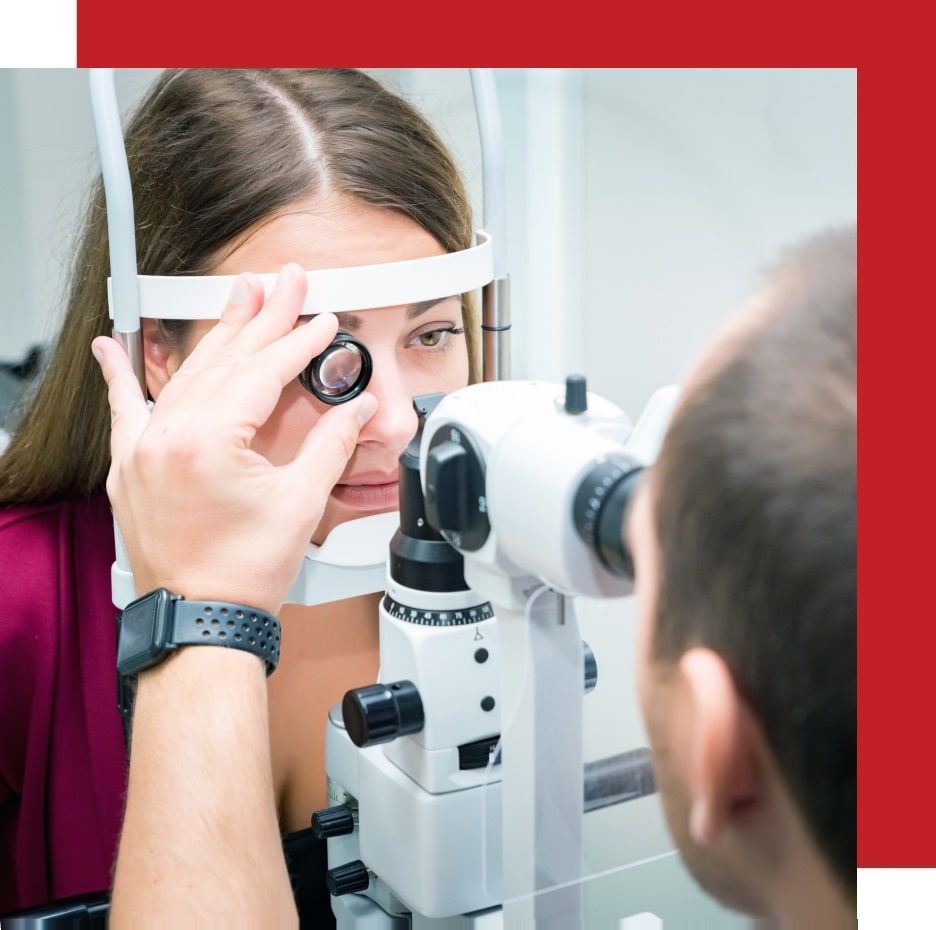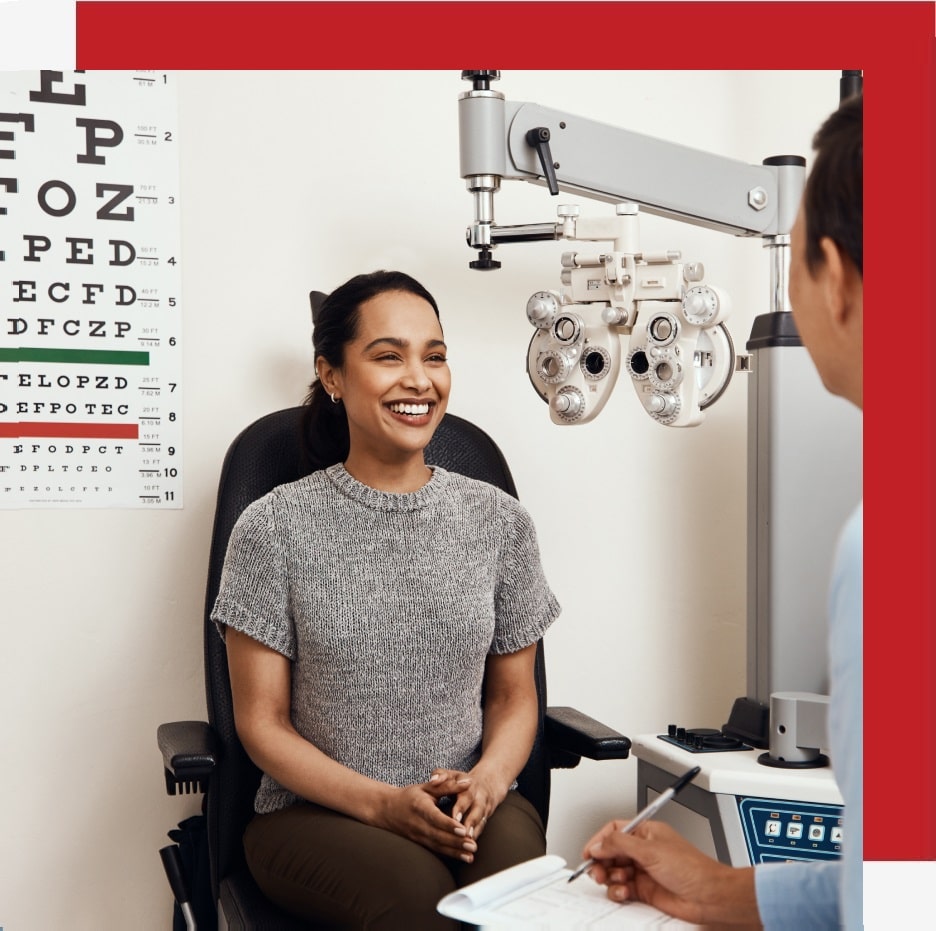DISCOVER CLINICAL OPTOMETRY
At Dr. Coward & Associates, we rely on our experienced team, high-quality products, and state-of-the-art technology to deliver you the vision results you seek.
We offer a range of clinical services to:
- Assess your need for eyeglasses or contact lenses
- Examine your entire visual system
- Test your ocular health
- Diagnose, manage, and treat ocular diseases
To see how our clinical optometry services can help your vision, come visit us today!


OUR CLINICAL SERVICES
The onsite lab at Dr. Coward & Associates allows us to offer top-quality optical services for our patients across Brighton, Trenton, and Belleville. With our top-notch technology and equipment, we can perform a variety of services, including:
- Advanced lens coatings
- Customizable frames & lens fittings
- Virtual fittings
We accept direct insurance billing for the majority of insurance companies.
OUR TECHNOLOGY & EQUIPMENT
Our team relies on advanced technology and equipment to diagnose, manage, and treat eye conditions and diseases. During an eye exam we may use any of the following tools:

